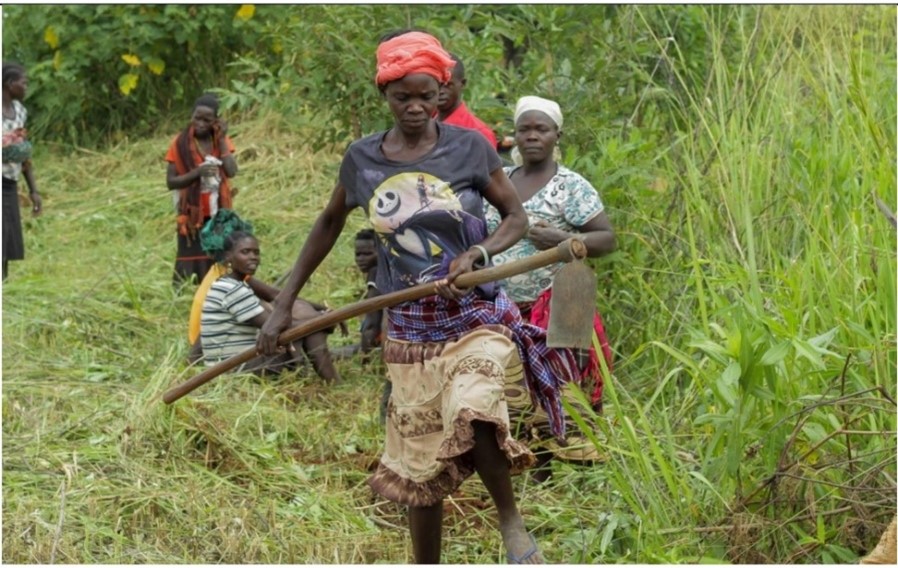The problem
In October 2022, AAIU and AFIRD trained a total of 39 young people (smallholder farmers of which 19 were female, 20 male and 1 PLWD). This resulted into the establishment of the Opok Agroecological Center in Amuru district, northern Uganda. This centre aims to equip communities mostly affected by climate change with practical skills and knowledge on climate risks, available local adaptation and mitigation measures and building community resilience. Through the trainings, smallholder farmers in northern Uganda applied a combination of the Participatory Assessment of Climate and Disaster Risks tool (PACDR), Climate Resilient Agroecology Model (CRAEM), and integrated watershed management identified important livelihood resources within their community, areas and resources that are at risk to climate, and natural or man-made hazards and implemented agroecological and climate resilient technologies and practices to improve their adaptative capacity.
This initiative is trying to address the unsustainable farming practices which include poor land management practices, climate change, slow technological innovations, and adoption particularly amongst women farmers where there is recognition that to address these there is need to design and implement, just, fair, feminist, and sustainable solutions.
The solution
The land on which the Opok Agroecological center is hosted belongs to one of the young people trained, the group chairman. The members provide the labour (as ‘sweat equity by the community’) to implement the climate resilient practices and maintain the centre. This builds ownership, contributes to sustainability and removes the community perception of the Opok Agroecological center as an ‘ActionAid project’ as observed in previously supported programmes.
The Opok Agroecological center is led by youth and women of Opok Village, Amuru district, Northern Uganda with financial and technical support from ActionAid International Uganda and its partners. This activity targets women farmers mostly. However, men also participated.
Effects and results
An agroecological center established as evidence for advocacy on sustainable climate resilience.


